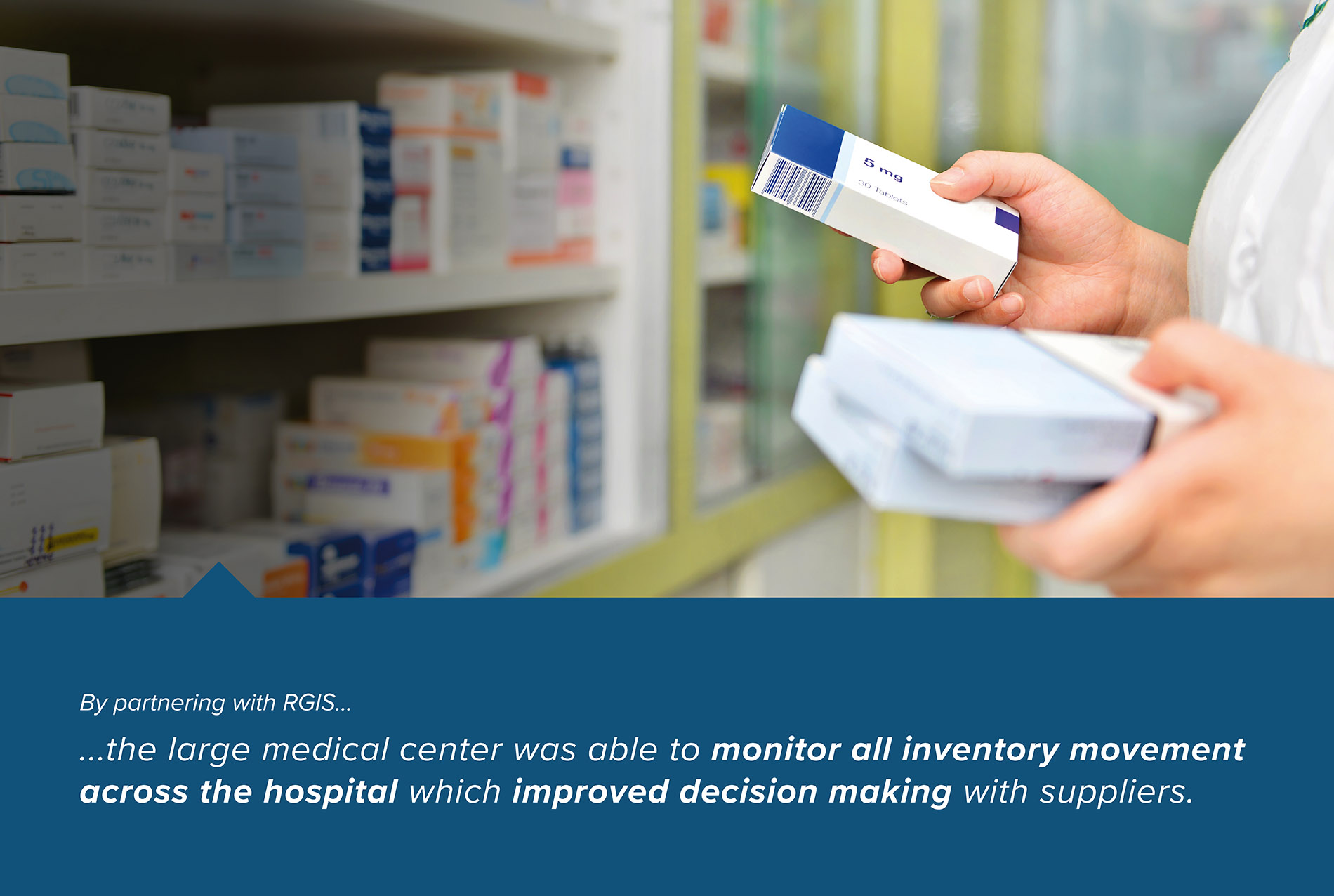Hospital Multiple Department Pharmacy Inventories

A large medical center in Brazil that invests in cutting edge technology for highly complex care, required the support of RGIS. It provides more than 30 medical specialties, working with more than 200 doctors and about 300 direct employees, in addition to indirect employees. In the inpatient sector, it has an excellent structure with 112 beds, divided into apartments, wards and the Intensive Care Unit (ICU).
REQUIREMENT
The large medical center needed an inventory company to conduct a hospital pharmacy count, so required RGIS to provide the following:
- All inventory to be counted within multiple departments
- The capacity to develop the integration of the hospital’s unique system (TASY)
- To provide data to develop a reliable operating procedure
- Audit reports and reports for decision making with suppliers
- Fast service capacity
- Validate quantity of items counted
SOLUTION
The large medical center partnered with RGIS to complete the hospital pharmacy inventory count project, and provided the following:
- Discussed all the requirements and potential challenges with stakeholders
- Mapped all the areas to have inventories conducted
- An operational procedure was created by department, and by sector with specific PPE requirements
- The inventories were carried out in the following departments while in full operation: Central Pharmacy, Warehouse, Satellite Pharmacy Surgical Center, Pharmacy, Emergency Room (Ground Floor, Ground Floor Unit, 3rd Floor ICU), CAF, OPME, Transport Case (UTI’s, Lithotripsy, Resonance, Hemodialysis, Computerized Tomography)
- Checked variances between the system and the inventory count
RESULTS
The large medical center found by outsourcing the hospital pharmacy inventory count project to RGIS, the following results were achieved:
- All pharmacy items were counted in all departments
- Due to accurate reporting the customer was aware of all stock within each department
- The customer was able to monitor all stock movement across the hospital which improved decision making with suppliers